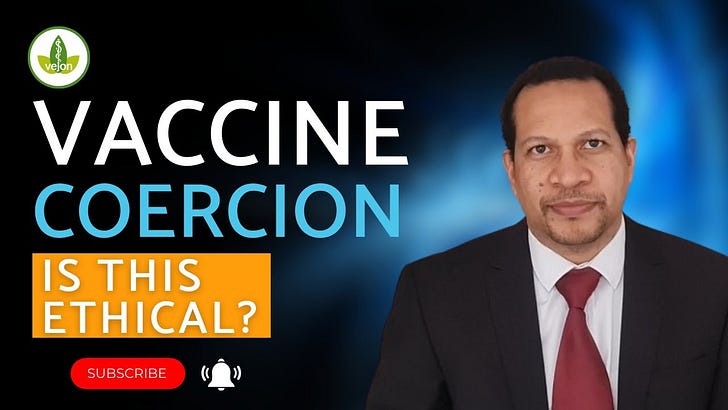What may be the longer term impacts of Covid Vaccine Coercion?
“A man convinced against his will, is of the same opinion still” (Dale Carnegie)
"Restricting people’s access to work, education, public transport and social life based on COVID-19 vaccination status impinges on human rights, promotes stigma and social polarisation, and adversely affects health and well-being."
Bardosh, Kevin, et al. "The unintended consequences of COVID-19 vaccine policy: why mandates, passports and restrictions may cause more harm than good." BMJ Global Health 7.5 (2022): e008684.
“The publicly communicated rationale for implementing such policies has shifted over time. Early messaging around COVID-19 vaccination as a public health response measure focused on protecting the most vulnerable. This quickly shifted to vaccination thresholds to reach herd immunity and ‘end the pandemic’ and ‘get back to normal’ once sufficient vaccine supply was available.1 2 In late summer of 2021, this pivoted again to a universal vaccination recommendation to reduce hospital/intensive care unit (ICU) burden in Europe and North America, to address the ‘pandemic of the unvaccinated’.”
“When mandate rules are perceived to lack a strong scientific basis, the likelihood for public scrutiny and long-term damage to trust in scientific institutions and regulatory bodies is much higher. A good example is the lack of recognition of infection-derived immunity in employer-based vaccine mandates and passports in North America, including most universities and colleges.”
Despite the WHO stating in early 2022 that boosters would prolong the pandemic by contributing to vaccine hoarding and low supply,97 universities (including some global health departments) in wealthy countries have mandated boosters for low-risk healthy students and faculty,59 when vaccination rates remained low in many low/middle-income countries (LMICs).
Conclusion
The adoption of new vaccination policies has provoked backlash, resistance and polarisation. It is important to emphasise that these policies are not viewed as ‘incentives’ or ‘nudges’ by substantial proportions of populations25–28 41 45 especially in marginalised, underserved or low COVID-19-risk groups. Denying individuals education, livelihoods, medical care or social life unless they get vaccinated—especially in light of the limitations with the current vaccines—is arguably in tension with constitutional and bioethical principles, especially in liberal democracies.30–33 While public support consolidated behind these policies in many countries, we should acknowledge that ethical frameworks were designed to ensure that rights and liberties are respected even during public health emergencies.
Bardosh, Kevin, et al. "The unintended consequences of COVID-19 vaccine policy: why mandates, passports and restrictions may cause more harm than good." BMJ Global Health 7.5 (2022): e008684.
Please support my research efforts by subscribing to Vejon Health Substack. Your support allows me to continue bringing you my insights in a timely and effective way.







The consequences are;
Zero trust in government.
Zero trust in the media.
Zero trust in health "experts".
Zero trust in the police and other security agencies.
Almost zero trust in other people.
Almost zero trust in society not to devolve into a mindless, unthinking mob.
Leave me the fuck alone and we'll get on just fine.
Jab Crow was evil and, to say the same thing, very stupid. May those who violated the human rights of others, those who comitted fraud, and those who committed malice aforethought, be held accountable before the law.